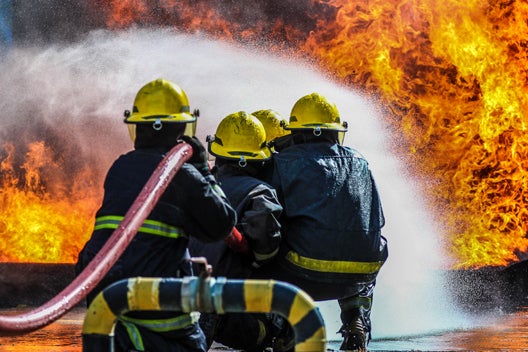Blast rocks Hezbollah stronghold in south Lebanon
Published 10:49 am Tuesday, September 22, 2020
|
Getting your Trinity Audio player ready...
|
By ZEINA KARAM
Associated Press
BEIRUT (AP) — An explosion shook a Hezbollah stronghold in southern Lebanon on Tuesday, sending thick grey smoke billowing over the village, but the cause was not clear.
The blast occurred in the southern village of Ain Qana, above the port city of Sidon. There were no immediate reports of casualties.
The explosion occurred in an arms depot for Hezbollah in the village, one Lebanese security official in south Lebanon said, without elaborating on the cause. The official spoke on condition of anonymity in line with regulations.
An official with the Shiite militant group Hezbollah confirmed there was an explosion but declined to give further details. Another local Hezbollah official could not confirm any casualties and said the nature of the blast was not yet clear. Both spoke on condition of anonymity because they were not authorized to give official statements.
Members of the group imposed a security cordon, barring journalists from reaching the area. Footage broadcast by the local Al Jadeed station showed damage to buildings and debris scattered across a large area.
There was no immediate comment from the Lebanese government. Hezbollah’s Al-Manar TV channel returned to normal programming after reporting the explosion.
Hezbollah and Israel fought a month-long war in 2006. Since then, the militant group is believed to have expanded its arsenal, amassing tens of thousands of rockets and missiles that can hit virtually anywhere in Israel.
The Israeli military declined to comment on the blast.
The mysterious explosion comes seven weeks after the massive explosion at Beirut port, caused by the detonation of nearly 3,000 tons of improperly stored ammonium nitrate. The explosion killed nearly 200 people, injured 6,500 and damaged tens of thousands of buildings in the capital, Beirut.
It is still not clear what caused the initial fire that ignited the chemicals, and so far no one has been held accountable.





